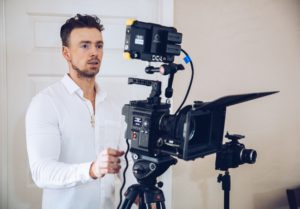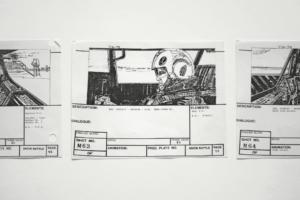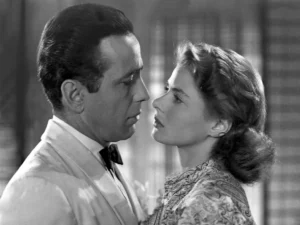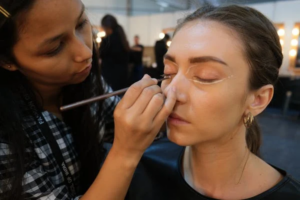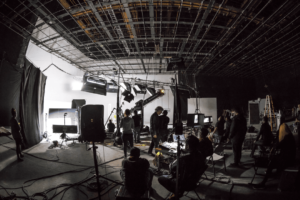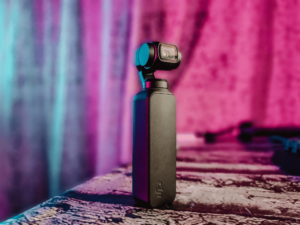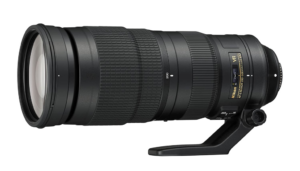If you want to know how to make a commercial, the first thing you need to consider is how to make it memorable. Think about commercials that stay with you. You’ll probably notice that they each have at least one of these elements:
- Humor
- Catchy language or the use of a tagline
- Iconic character or characters
- Emotional pull
- They have good, simple stories
- They have the right tone
- There’s a recurring theme
- There’s a call to action
To ensure you’re creating a commercial with the best possible messaging, focus on answering these three questions in the pre-production phase of making your commercial:
- What’s the message?
- Who’s the audience?
- What’s the story?
Answering these questions specifically and clearly will help keep your commercial focused and appealing to viewers.
1. Use the right ingredients.
Most effective commercials employ a combination of emotional pull, whether upbeat like humor or thoughtful like empathy, combined with an easy-to-remember message to attract viewers.
2. Know your brand.
Big brands can get away with commercials without a call to action that just elicits emotions. Smaller or lesser-known companies must entice their customers to act through the commercial.
3. Develop a signature element.
Stand out from other commercials with a unique, identifiable character, theme, or idea that’s easy for your audience to remember.
4. Keep it simple.
Remain true to your message and ensure all production decisions support that message.
5. Don’t cut corners.
You get what you pay for. An investment in your commercial is an investment in your success.
6. Include these elements.
Most outstanding commercials, in addition to using emotion and taglines, usually include important information like audience demographics and voice of the customer (VOC) info when planning the ad.
7. Create a compelling story.
The story is everything if you want to keep your audience engaged. Find an excellent idea, create an effective storyboard, and write a great script.
8. Clearly represent your brand’s personality.
The commercial you make should be a reflection of your brand’s voice and ideals. Make sure it matches, in style and feeling, other concurrent marketing strategies.
9. Make an effective storyboard.
A storyboard is an integral part of creating a cohesive and effective commercial. Create a moving story, illustrate the scenes, and include notes to accompany the illustrations.
10. Create a strong idea.
The first step in making a commercial is identifying a powerful idea. Go for something bold that will stand out from direct and indirect competitors.
11. Write a powerful script.
Before you write your own commercial script, read a few from other successful commercials here. Ad scripts are very different from TV or movie scripts due to their brevity and necessary call to action. When writing :
- Use direct language
- Show the audience your message rather than telling them your message
- Time out the spot to ensure it won’t get cut off
- Use a simple narrative to convey your message
12. Scout locations.
Think about the best place to film your commercial. When deciding on locations, consider factors like cost, lighting, sound, and permitting.
13. Select your actors.
Choose professional actors who match the demographic you’re trying to reach. If you don’t have the budget for or access to professional actors, consider using voice-overs rather than on-screen talent.
14. Find a production company.
If you don’t have professional cameras, lights, sound equipment, and video editing software at your disposal, consider hiring a production company to assist you. They can handle writing, shooting, and editing or one or two of those elements in addition to ensuring professional quality.
15. Plan your shots.
Take your original script, or spec script, and add all the shooting details to it to create your shooting script. Keep the script easy to follow and make sure everyone on set knows the central message of the commercial.
16. Block the set.
Block the set for the crew and actors with tape marks so everyone knows where to stand. This ensures the lights hit the actors correctly and that you’ll capture the best audio.
17. Film all the scenes.
Make sure you film every scene with every necessary angle, so you’ll have plenty of footage to work with in the editing room.
18. Get some B roll.
Consider filming some B roll, or background footage, to use as transitions or for voice-overs during the commercial.
19. Ensure cohesion when editing.
When editing all the footage into a final commercial, make sure you align the audio with the video, especially if you’re using voice-overs. Keep the messaging clear and the story simple to follow.
20. Include a call to action.
Always give your customers the next step by including a clear call to action. This might be a directive to visit the company’s website, stop by the store, or use the QR code to learn more.
21. Keep to your time restrictions.
Ensure your commercial is exactly the time allowed or it’ll get cut off when played. Your call to action needs to be a second or two before the end, for this reason.
22. Schedule when to play your ad.
Purchase airtime on a channel and during a time block that matches your demographics’ viewing schedule. You may have to spend more money on prime spots than off-prime times, but you’ll likely reach more people.
23. Aim for frequency.
Make sure you purchase several spots and that your commercial runs a few times at least. Tie in additional marketing supports like a website landing page specific to the commercial.
The Cost of Making a TV Commercial
You can spend very little money making a commercial or millions of dollars. The range varies depending on the individual costs of quite a few factors:
- Airtime/channel
- Production company
- Actors
- Videographer
- Writers
- Video editors
- Costuming
- Props
If you’re working with a limited budget, consider using online resources to help with pre-recorded stock footage or purchasing video editing software, like iMovie, Windows Movie Maker, or another online video editor, to handle that portion of production yourself. You could also hire amateur freelancers who may cost less than professionals.
Possible Roadblocks to Consider When Making a Commercial
Before you delve into creating your commercial, consider these possible challenges:
- Paying high prices for a premium spot does not necessarily equate with viewership. Many people get up and do other things during commercials.
- People can fast forward through or skip ads. This is especially true with DVR services or on some streaming channels.
- On mobile devices, people can easily do other things while the commercial plays. They might open a different app, set their phone down, or respond to messages while the ad plays rather than watching it.
It’s absolutely essential to create an ad that immediately hooks the viewer’s attention so that they’ll stick around to hear your message.
15 Tips for Creating an Effective TV Commercial
To make the most of your commercial, use these tips to guide your process:
- Maintain clear brand representation throughout your commercial.
- Use a story to keep your audience engaged.
- Include an iconic theme, character, or tagline so your viewers remember your company.
- Focus on one idea.
- Make the commercial professional.
- Use pivots in the story to keep the audience watching.
- Keep the story creative and interesting.
- Push boundaries with your story.
- Include a powerful hook.
- Consider using influencers for recognition value.
- Know your audience.
- Be authentic.
- Include a social media campaign tie in.
- Use voice-overs to ensure the viewer hears your message.
- Put your commercial on YouTube and maintain an active YouTube channel.
Making a commercial requires a powerful idea, excellent writing, and professional film and editing tools. With some education and training, you can make an exceptional commercial that entices customers to take action.



